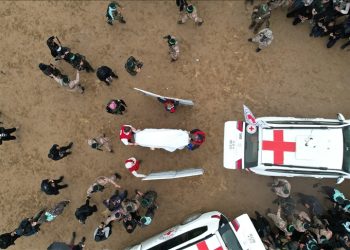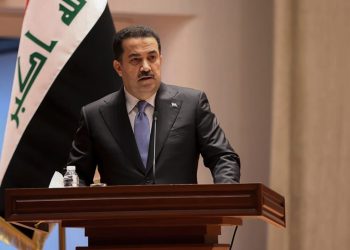On this Friday, a senior U.S. diplomat informed Syria’s newly appointed leader, Ahmed Al-Sharaa, that Washington would no longer pursue a reward for his capture. The diplomat also expressed approval of the “positive messages” shared during their discussion, including a commitment to combat terrorism.
Barbara Leaf, the U.S. Assistant Secretary of State for Near Eastern Affairs, made these remarks following her meeting with Sharaa in Damascus. This marked the first official visit by U.S. diplomats to the Syrian capital since the onset of the Syrian civil war.
The offensive that led to the fall of President Bashar al-Assad on December 8 was spearheaded by Hayat Tahrir Al-Sham (HTS), a group with roots in al-Qaeda’s Syrian branch, though it has attempted to rebrand itself in recent years. Despite the U.S. labeling HTS as a terrorist organization, Leaf met with Sharaa, the leader of the group.
Leaf shared with reporters that, as a result of their discussions, Washington would not continue the Rewards for Justice program, which had been in place for years. She emphasized the importance of tangible progress and not just words, noting, “We are looking for concrete actions.” She also stressed the need for inclusivity and consultation during Syria’s transitional period. “We strongly support a Syrian-led process that fosters an inclusive government respecting the rights of all Syrians, including women and all ethnic and religious communities,” Leaf added.
These principles had previously been agreed upon by U.S. and European diplomats, as well as officials from Turkey, during a meeting on December 14 in Aqaba, Jordan.
A Syrian official confirmed to AFP that the meeting with Leaf had indeed taken place, describing it as “positive” and hopeful for beneficial outcomes. The U.S. delegation also included the special envoy for hostages, who has been investigating the whereabouts of missing Americans like journalist Austin Tice, who was abducted in Syria in 2012.
In a statement on the social media platform X, the U.S. Embassy in Syria also revealed that the discussions touched upon regional issues, Syria’s pledge to be a responsible neighbor, and collaborative efforts against terrorism.
Before the Aqaba talks, U.S. Secretary of State Antony Blinken had underlined the need to prevent the resurgence of ISIS. On Friday, the U.S. military confirmed it had killed a senior ISIS leader and another operative in Deir Ezzor, marking an escalation in American military action against the group since Assad’s downfall.
Turkey’s struggles to play a role in Syria!
Turkish President Recep Tayyip Erdogan, a long-time opponent of Assad, reiterated calls for Syria’s territorial integrity and unity. Turkey has been pressuring Kurdish forces in Syria and recently stated the necessity of eradicating groups like ISIS and the PKK, the Kurdish militant organization.
Erdogan highlighted these groups as threats to Syria’s survival, a sentiment echoed by Turkey’s view of the Syrian Democratic Forces (SDF), which include the Kurdish YPG militia that Turkey considers an extension of the PKK.
Syria’s civil war, which has claimed over 500,000 lives, also caused a mass exodus of refugees. Following Assad’s departure, rebel forces have freed prisoners held by the regime and uncovered mass graves, believed to contain the remains of those killed or detained by Assad’s government since the war’s beginning in 2011.







